Agroecology Student Perspectives
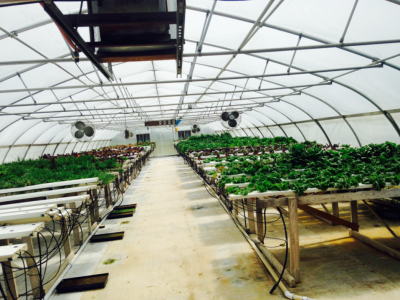
Once in a blue moon… June 1st, July 1st and today, July 31st , the significant dates of the ASI program and the dates of this summer’s full moons. I knew as an urban farmer that I was in for something different when I came to Merry Lea. Little did I know that the whole Michiana area would be my classroom and make this a rare learning experience.
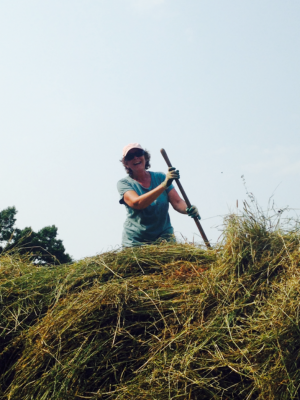
For me the field trips were the best part of the summer. Don’t get me wrong, the whole learning experience was rich and rewarding; lecture, lab and practicum emphasized so many important concepts in environmentally sound agriculture. The field trips took us to see the concepts being put into practice in the real world and making theory real. These held the richest learning moments for me personally.
From seeing zero-carbon farming done by draft horses (see photo of me helping hay using horse-drawn wagons) to the high-tech world of hydroponics, I was engaged and immersed in the learning experience.
– Andy Myers, Lipscomb University (Nashville, TN)
[new_row]
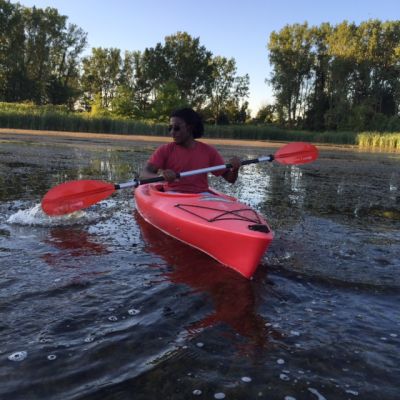
I’ve definitely enjoyed my time at Merry Lea Sustainable Farm this summer.The overall experience was very educational and I can’t deny that I learned a lot in the Agroecology course with Jonathan Schramm and the small farm management and produce marketing course with Melissa Kinsey. I also can’t deny it that I had a lot of fun with all the activities that are available at Merry Lea such as the eight miles of trails, ponds for kayaking, and bike provisions. There was never a dull moment in or outside of the classroom. By the end of the day I had thoroughly used my mental and physical energy for the love of nature.
– Sayyid, Fisk University (Nashville, TN)
[new_row]
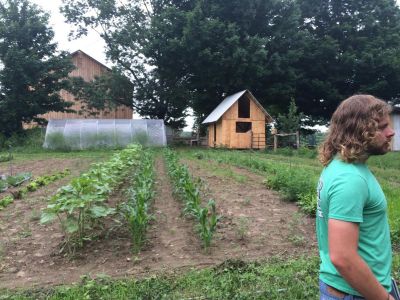
At the time of this writing the ASI program has just wrapped up its end of term meal and tearful goodbyes. This naturally offered opportunity for reflection on the program and in my doing so two things really stood out to me.
First, I really appreciated the people. Our group was small and remarkably diverse in thought. We grew close to each other and close to our professors who also were diverse. They were very invested in the program and in us.
Second, I reflect on how much I have learned from the course about working with nature. I am not afraid of chemistry, but through its overuse and manipulation we have, to some extent, forgotten how much more than planting dates nature can supply. From the passing along of energy to habitat for beneficials, nature provides so much for us that we often think we can do ourselves. This attitude is changing in broader agriculture, but not anywhere near the extent the ASI program teaches. I am grateful for these lessons, and hope to both build my networks and implement this agricultural knowledge. Thanks ASI team!
Reflections on Small Farm Management & Produce Marketing course:
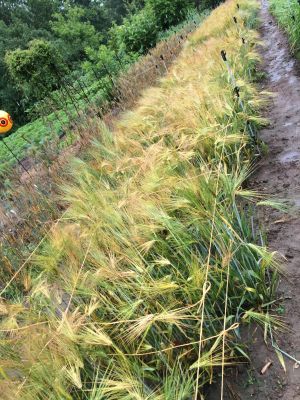
ASI 2015 has been full of good opportunities and learning experiences. One that I especially appreciated was a visit to Sherck Heirloom Vegetables, Seeds, and Plants in Bristol,IN. John Sherck has a personal mission to arm the Michiana region with its own locally adapted seeds. He spends a lot of focus on wheat, barley and corn. With my agricultural background I really appreciate grain growing and hope to incorporate that into the farm business I’d like to operate. Sherck grows unique and specialty grains and is able to determine each variety’s viability in this region as well as select within the varieties for the most adapted traits.
I would consider seriously purchasing seeds from him to grow for my own potential operation–he espouses the benefits of each grain in its application in bread, beer, etc. and the regions where it first became popular–and I appreciated hearing his take on various aspects of the business. For instance, his original objective was to grow for and sell to the local region. I feel the same way about growing and selling grain, but he discussed with us that even with this vision he still finds himself shipping seeds nationally and, on occasion, globally. Through this I can see that even though my objective is to stay as local as possible, ultimately where it goes is where it can pay my bills.
– Andrew Harris, Goshen College student (Environmental Science major, Agroecology concentration)




